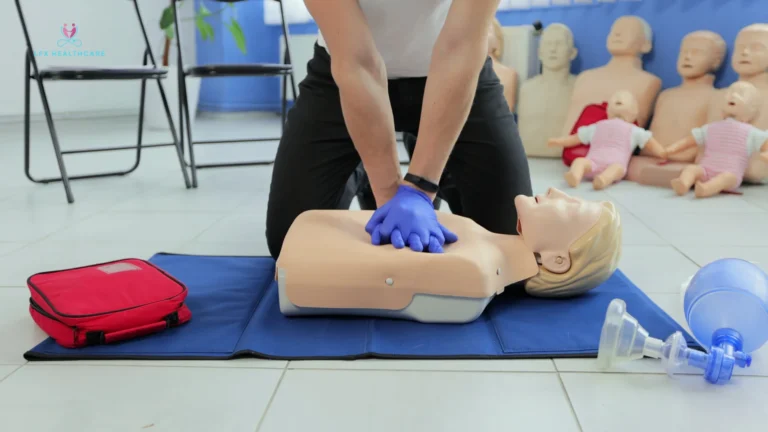At LFX Healthcare, our training sessions frequently reveal a pressing concern among healthcare professionals: poor staffing and its detrimental impact on delivering person-centred care. Our trainees often recount their struggles in providing the attention and personalised care that each patient deserves due to understaffed teams.
The Challenges of Insufficient Staffing
Insufficient staffing not only leads to burnout among healthcare professionals but also results in rushed consultations and overlooked patient needs. This undermines the core principle of person-centred care, which focuses on treating individuals holistically by considering their unique needs and preferences. When healthcare teams are stretched thin, the quality of care diminishes, affecting patient satisfaction and outcomes.
The Impact of Staff Burnout
Burnout among healthcare professionals is a growing concern. Symptoms of burnout include emotional exhaustion, depersonalisation, and a reduced sense of personal accomplishment. Burnout not only affects the well-being of healthcare workers but also compromises patient care. Burnt-out staff are more likely to make errors, have higher absenteeism rates, and exhibit lower levels of empathy and engagement with patients.
Preventing Staff Burnout
Preventing staff burnout requires a multifaceted approach:
Adequate Staffing Levels: Ensuring sufficient staffing levels is critical. Adequate staffing allows healthcare professionals to manage their workloads effectively, reducing stress and preventing burnout.
Supportive Work Environment: Creating a supportive work environment where staff feel valued and supported can significantly reduce burnout. This includes providing access to mental health resources, encouraging regular breaks, and fostering a culture of open communication.
Professional Development: Continuous professional development opportunities can help staff feel more competent and satisfied in their roles. This can include training on stress management, time management, and resilience.
Work-Life Balance: Promoting a healthy work-life balance is essential. Encouraging staff to take time off, offering flexible working hours, and ensuring manageable shift patterns can help prevent burnout.
Recognition and Reward: Regularly recognising and rewarding staff contributions can boost morale and motivation. Simple gestures of appreciation can go a long way in making staff feel valued.
Addressing Complaints and Safeguarding Issues
We emphasise the importance of promptly addressing complaints and safeguarding issues. Ensuring that every voice is heard and every concern is addressed is crucial in maintaining trust and improving the overall quality of care. A proactive approach to these issues fosters a safe and supportive environment for both patients and healthcare professionals.
Our Commitment
At LFX Healthcare, we are dedicated to advocating for better staffing levels and creating a culture where complaints and safeguarding concerns are raised and resolved efficiently. By doing so, we uphold the highest standards of person-centred care, ensuring every patient feels valued and respected.
Enhancing the Quality of Care
If you need further information on improving staffing levels or addressing staff burnout in your organisation, please get in touch with us. We are here to help you enhance the quality of care and support the well-being of your healthcare professionals. Together, we can make a significant difference in the lives of patients and healthcare workers alike.
Resources and Support for Healthcare Professionals
In addition to our commitment, there are several organisations and online resources available to support healthcare professionals in the UK:
Mind: Offers a range of mental health support resources and services.
British Medical Association (BMA): Provides support, advice, and resources for doctors’ well-being.
Royal College of Nursing (RCN): Offers resources and support for nurses, including counselling and peer support.
Health and Care Professions Council (HCPC): Provides regulatory support and resources for various healthcare professionals.
Samaritans: Offers confidential support to anyone in distress, including healthcare workers.
NHS Employers: Provides resources and guidance on staff well-being and support.
Headspace: An online platform offering meditation and mindfulness resources.
Mental Health Foundation: Provides a range of resources and information on mental health support.



